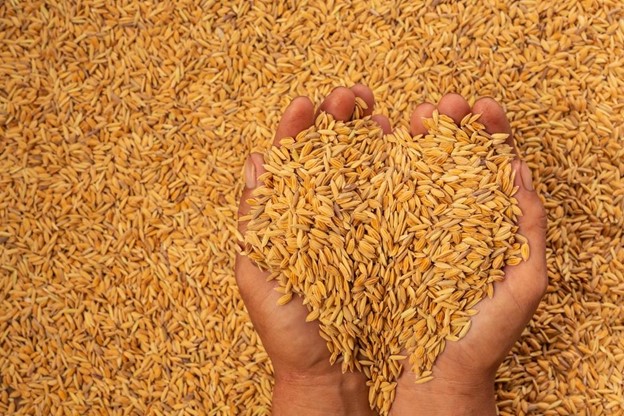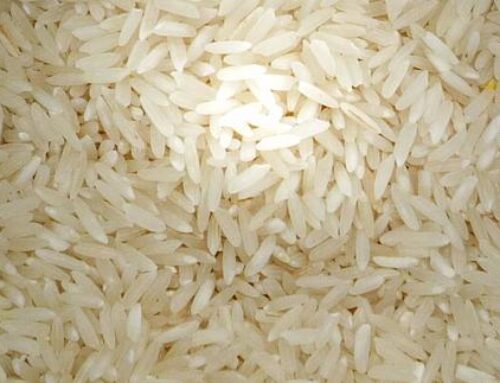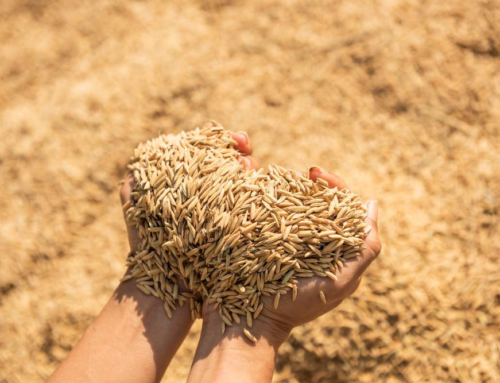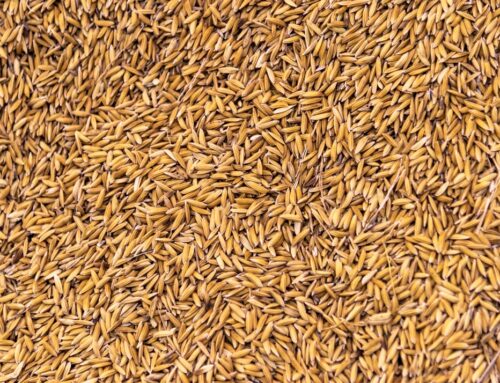Pakistan is a prime player in the global rice market, boasting a rich history in rice cultivation, great diversity in rice varieties, and a strategic location that favors export. The country’s climate and fertile soil create the perfect conditions for growing export quality rice in Pakistan.
The Rising Export Trends
Forecasts for 2021/22 suggested a significant increase in Pakistan’s rice exports, up to 4.8 million tons. This was nearly 30% higher than the previous year’s exports. Such favorable export conditions were expected to continue, with predictions for the following year raising the ante to 4.9 million tons.
Pakistan has maintained ample rice supplies despite challenging weather conditions and fluctuations in the planting seasons. The country’s advent of large stocks, competitive export prices, and strong demand from key markets have played significant roles in keeping its rice prices globally competitive.
The Global Reach of Pakistani Rice
The diversity in Pakistan’s rice market is quite impressive. Pakistan’s top export markets are a mix of countries to which it exports different rice varieties, including fragrant long-grain basmati, regular milled, and broken rice.
In recent years, Pakistan has emerged as a major supplier to China, the world’s largest rice-importing and consuming country. In the first few months of 2022, Pakistan exported more rice to China than Vietnam, the historically top supplier. This spread includes both milled rice and broken rice, with the latter primarily used in feed.
Apart from China, Pakistan also exports competitively priced milled rice to East Africa – particularly Kenya, Mozambique, and Tanzania – and neighboring Central Asian countries, mainly Afghanistan.
Basmati Rice: A Premium Product
Pakistan is also known for producing and exporting basmati rice, a premium product renowned for its aromatic qualities. Demand for basmati rice has grown in recent years, especially in the European Union and the Middle East. Despite stiff competition from India, the top global basmati exporter, Pakistan remains a significant basmati supplier to the European Union, the United Arab Emirates, Saudi Arabia, and the United Kingdom.
The Role of the Government
The government of Pakistan plays a crucial part in the country’s rice production, marketing, and trade. The government intervenes heavily in wheat production, marketing, and trade to ensure sufficient supplies of a commodity critical to food security. This intervention includes the procurement of wheat from the domestic market through price support programs and a mandated selling price for flour mills, used to intervene in periods of high food inflation.
Challenges and Interventions
Despite the promising trends in rice exports, Pakistan’s wheat production has been adversely affected by unfavorable weather conditions. As a result, the government has had to aggressively procure international and domestic wheat, raising the 2023/24 wheat import forecast by 500,000 tons to 2.5 million.
Several months early, the government released wheat from strategic reserves to counteract rapidly rising prices. This has led to concerns that stocks will be much lower by January-March 2023, a period traditionally more dependent on government intervention.
The Role of Rice Traders in Pakistan
Rice Traders in Pakistan play a significant role in supporting the country’s rice exports. They navigate the complexities of domestic and international markets, foreseeing demand trends, and ensuring timely and efficient supply to meet this demand.
The Quality of Pakistani Rice
Rice suppliers in Pakistan are committed to providing high-quality grains. They work across the supply chain, starting at the farmer’s level and producing high-quality grains that are then shipped around the world. These rice suppliers are focused on quality and sustainability, working on projects that aim to decrease pollution, save water, and become more environmentally friendly.
The Diversity of Rice Varieties
Pakistan is known for its variety of rice. Each variety has unique characteristics and uses, from Long Grain to Medium Grain and Round Grain Rice. For instance, Medium Grain Rice, sourced directly from the Himalayan Mountains, is grown using water from melted glaciers, making it one of the world’s highest-quality grains of rice.
The Power of Brown Rice in Pakistan
Brown rice in Pakistan is getting its share of the limelight. Brown rice is the type of rice that is husked, graded, cleaned, and sorted but not polished. Therefore, it retains more vitamins than white rice and is recommended for healthier diets.
The Future of Rice Exports in Pakistan
The future of rice exports in Pakistan looks promising. With the government’s continued support, farmers’ hard work, and the strategic efforts of rice traders, Pakistan is poised to sustain and even increase its position in the global rice market.
Conclusion
In conclusion, the TajFood rice industry is a significant player in the global market. The country’s ability to produce and export quality rice in Pakistan in diverse varieties has placed it on the world map. As the global demand for rice continues to grow, Pakistan’s role as a reliable and quality rice supplier is set to become even more crucial.
Frequently Asked Questions (FAQs)
- What is the quality of rice exported from Pakistan?
Pakistan exports high-quality rice, including basmati, long grain, medium grain, and round grain rice. The country’s unique climate and soil conditions contribute to the superior quality of its rice.
- Who are the top buyers of Pakistani rice?
The top buyers of Pakistani rice include China, the European Union, the United Arab Emirates, Saudi Arabia, and the United Kingdom.
- What role does the government play in Pakistan’s rice industry?
The government of Pakistan plays a crucial role in the country’s rice industry, intervening heavily in production, marketing, and trade to ensure sufficient supplies and maintain competitive prices.
- Is brown rice popular in Pakistan?
Yes, brown rice is gaining popularity in Pakistan for its higher vitamin content and health benefits. It is especially recommended for those aiming for a healthier diet.
- What is the future of Pakistan’s rice exports?
The future of Pakistan’s rice exports looks promising. With continued support from the government, strategic efforts of rice traders, and the superior quality of rice, Pakistan is set to continue its growth in the global rice market.







Leave A Comment